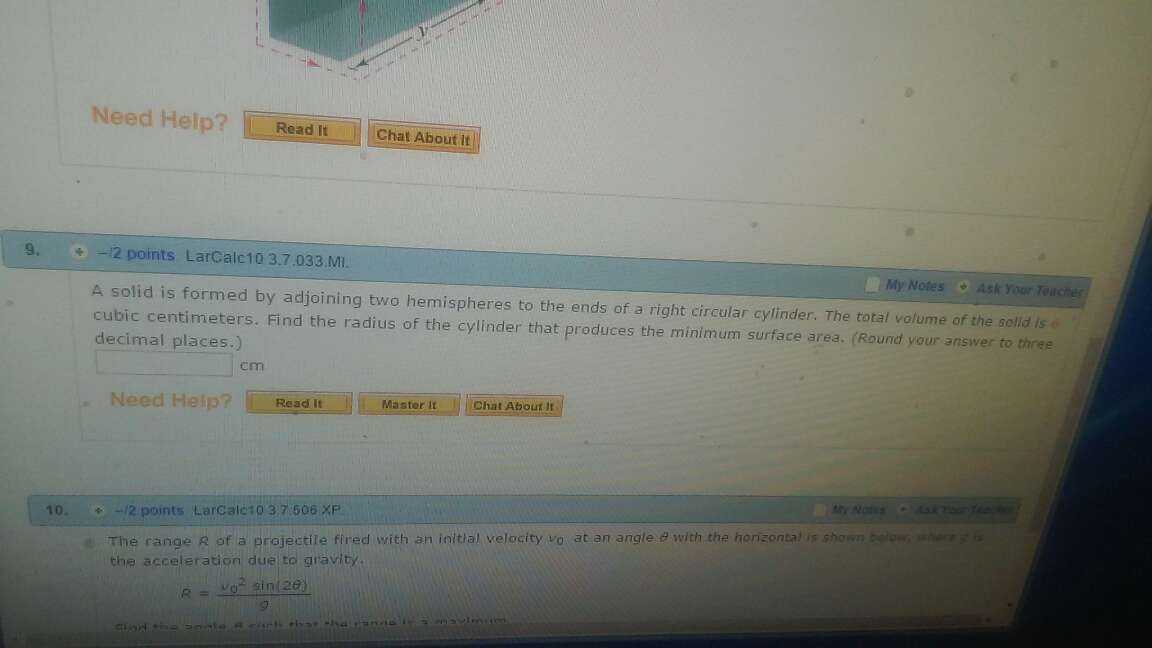
Solution:
Minimize $ 4\pi r^2 + 2\pi r h $ subject to $ \frac{4}{3}\pi r^3 + \pi r^2 h = 6 $.
The Lagrangian is $ 4\pi r^2 + 2\pi r h - \lambda(\frac{4}{3}\pi r^3 + \pi r^2 h - 6) $.
The partial derivatives must be 0, so we have
$ 8\pi r + 2\pi h - \lambda (4 \pi r^2 + 2\pi r h) = 0 $
$ 2 \pi r - \lambda(\pi r^2) = 0 $
The second equation implies $ \lambda = \frac{2}{r} $.
Substitute this back to the first equation, solving get $ h = 0 $.
This seems reasonable because we know sphere maximize volume and minimize surface area, it only make sense if the cylindrical part vanish.
So it is simple now, $ \frac{4}{3}\pi r^3 = 6 $, $ r = \sqrt[3]{\frac{9}{2\pi}} = 1.127251652 $.
No comments:
Post a Comment